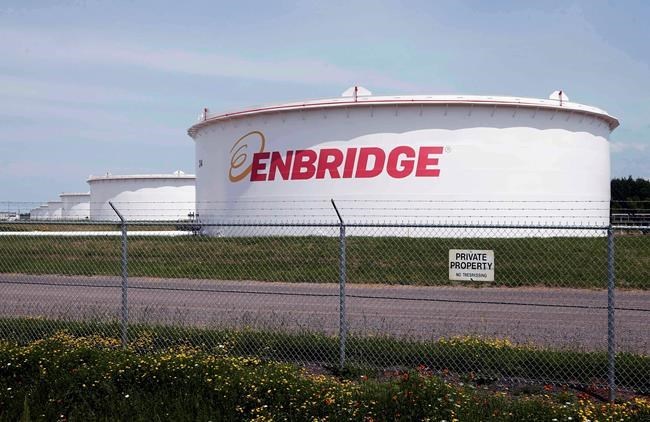
FILE - In this June 29, 2018 photo, tanks stand at the Enbridge Energy terminal in Superior, Wis.Minnesota utility regulators reaffirmed their support Thursday, June 25, 2020, for Enbridge’s plan to replace its aging Line 3 crude oil pipeline. The Minnesota Public Utilities Commission voted 4-1 to reject petitions for reconsideration filed by several Ojibwe bands, environmental groups and the state Commerce Department. (AP Photo/Jim Mone, File)
November 30, 2020 - 10:38 AM
MINNEAPOLIS - Minnesota regulators approved the final permit Monday for Enbridge Energy’s Line 3 crude oil pipeline replacement across northern Minnesota, giving the company the green light to begin construction on the $2.6 billion project.
The Minnesota Pollution Control Agency granted a construction storm water permit for the project, which was the last hurdle that Calgary, Alberta-based Enbridge needed to clear. The U.S. Army Corps of Engineers and the independent Minnesota Public Utilities Commission gave their final approvals last week. But opponents are still fighting the project.
Enbridge said in a statement that construction can now begin, but didn't immediately say when that would happen. It said replacing the aging pipeline, which was built in the 1960s, is the best option for protecting the environment and communities while meeting the region’s energy needs.
Two Native American tribes — the Red Lake and White Earth Bands of Chippewa — asked the PUC last week to stay its approval of the project, saying the influx of construction workers would put residents along the route at higher risk of COVID-19. A consolidated appeal by environmental and tribal groups is also pending before the Minnesota Court of Appeals.
Opponents say the project threatens spills in pristine waters where Native Americans harvest wild rice and that the Canadian tar sands oil it plans to carry would aggravate climate change.
Line 3 begins in Alberta, Canada, and clips a corner of North Dakota before crossing Minnesota on its way to Enbridge’s terminal in Superior, Wisconsin. Replacement segments in Canada, North Dakota and Wisconsin are already complete.
News from © The Associated Press, 2020